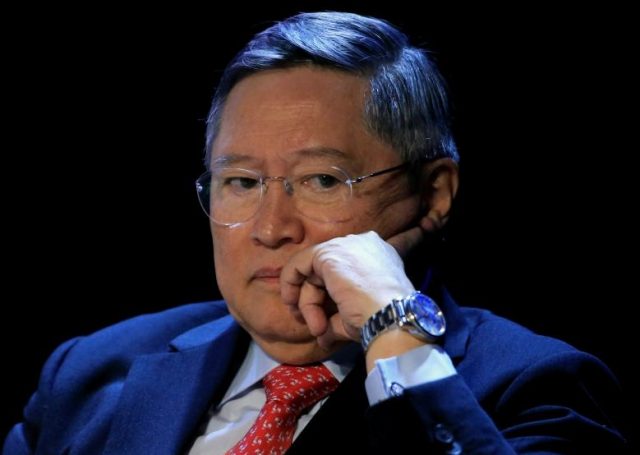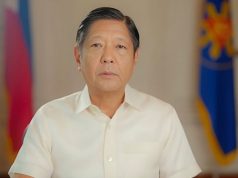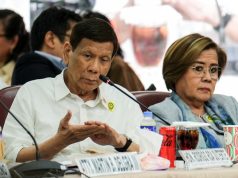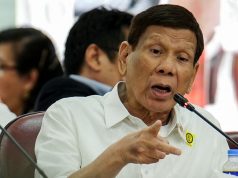
YOKOHAMA, Japan – President Rodrigo Duterte is to announce his choice for the next central bank governor soon, giving his administration its biggest chance yet to shape the fast-growing country’s economic future, Finance Secretary Carlos Dominguez said on Sunday.
Dominguez also laid out an ambitious tax reform agenda that would raise fuel taxes, lower corporate taxes, discourage tax evasion, and generate more revenue for the government’s infrastructure spending program.
“I told the president this is probably the most important appointment you are going to make and I told him the things he should consider,” Dominguez said in an interview with Reuters at an Asian Development Bank meeting.
“I’m sure the president will make the decision in good time.”
Diwa Guinigundo, currently one of the central bank’s deputy governors, is one leading candidate for the top post, and his appointment would send a strong signal of policy continuity.
Nestor Espenilla, the Philippines Central Bank’s second deputy governor, and Peter Favila, a former trade secretary and monetary board member, are also considered candidates.
If Duterte surprises investors with an unconventional choice, the central bank’s ability to manage inflation and currency fluctuations could be called into doubt.
The Philippines is among the world’s fastest growing economies and inflation is currently well within the central bank’s range for its inflation target.
However, the threat of capital flight from emerging markets like the Philippines makes the central bank’s job more difficult.
To ensure the economy continues to grow, the Duterte administration plans to increase infrastructure spending to as much as 7 percent of gross domestic product (GDP) by the end of its six-year term in 2022 from 5.2 percent of GDP this year.
To fund the plan, the government has asked Congress to approve a package of tax measures to raise funds. Dominguez said he broke up the tax plan into several parts because he wanted to tackle difficult issues first, like raising fuel taxes.
The government also wants to lower the top income tax rate, and simplify the tax code for income on bank deposits, Dominguez said.
Another plan is to introduce an amnesty on inheritance tax, because many people are holding property in their relatives’ names to avoid paying the tax, Dominguez said.
This would be different from a tax amnesty offered recently in Indonesia, because their policy was designed to encourage repatriation from overseas.
The Philippines also plans to raise $200 million from a maiden panda bond issue in September and that the Bank of China would likely take a leading role in the issue, Dominguez said.
Panda bonds are yuan-denominated debt sold in China by foreign firms or governments.









